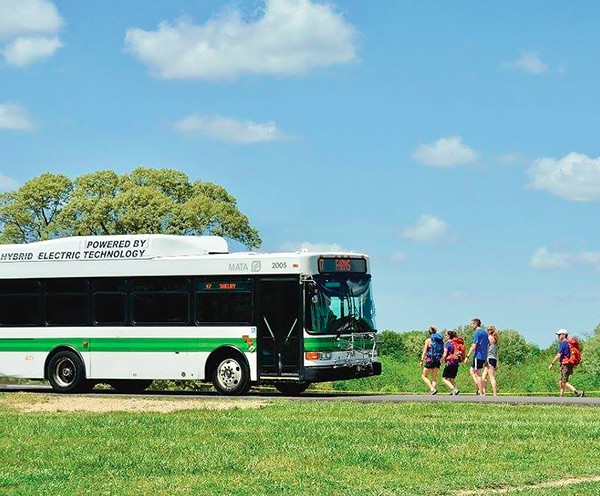 Memphis Area Transit Authority
Memphis Area Transit Authority
Mayor Harris wants to give MATA $10 million.
Shelby County Mayor Lee Harris presented a plan to the Shelby County Commission Wednesday to generate $10 million in funding each year for the Memphis Area Transit Authority (MATA).
In the past, MATA has said it needs an additional $30 million in funding to build a more robust, frequent, and reliable system.
Gary Rosenfeld, CEO of MATA said Wednesday that the mayor’s proposal is a “landmark plan” that would “dramatically change the trajectory of funding for public transit in this community.”
Harris said the plan would have “zero impact” on most families and does not include an increase in property taxes. Instead, the plan would implement an annual $145 registration fee for households’ third vehicle and beyond. Harris said this would only affect about 17 percent of residents here.
“Today I presented out #Future4Transit plan to the Shelby County Commission,” Harris wrote on Twitter. “If adopted it will have a big impact on transit.”
If the commission adopts the plan, the county would also allocate 1.5 percent, or $1 million of its capital improvement budget, to transit.
Harris anticipates the additional funds will be used to implement recommendations laid out in the Transit Vision 3.0 Plan, such as an express route to the airport and increased frequency on MATA’s most popular routes.
The additional $10 million would have an economic impact of more than $40 million, Harris said, citing expanded job access and a reduction in car accidents.
[pullquote-1]
The mayor also said the plan would have a significant impact on poverty, noting there are 15,000 available jobs in the county: “More frequent transit helps people get a job and keep a job.”
The transit investment would also have a “big impact on our shared environment.” Harris said. With more frequent and reliable transit options, there would be more ridership and a reduction of automobile emissions by thousands of tons.
“Everyone has to play a role in trying to preserve our shared environment, even local officials,” Harris said. “We will all enjoy the benefits of clean air, reduced congestion, and a reduction in poverty. This sustainable investment in transit helps achieve all those objectives.”
Harris is looking for the commission to vote on the plan by February 2020. County approval could be contingent upon MATA giving the county a place on its board.
Earlier this year, the county commission approved $2.5 million of the county’s 2020 budget going toward MATA and related infrastructure improvements. This was the first investment in public transit by the county.